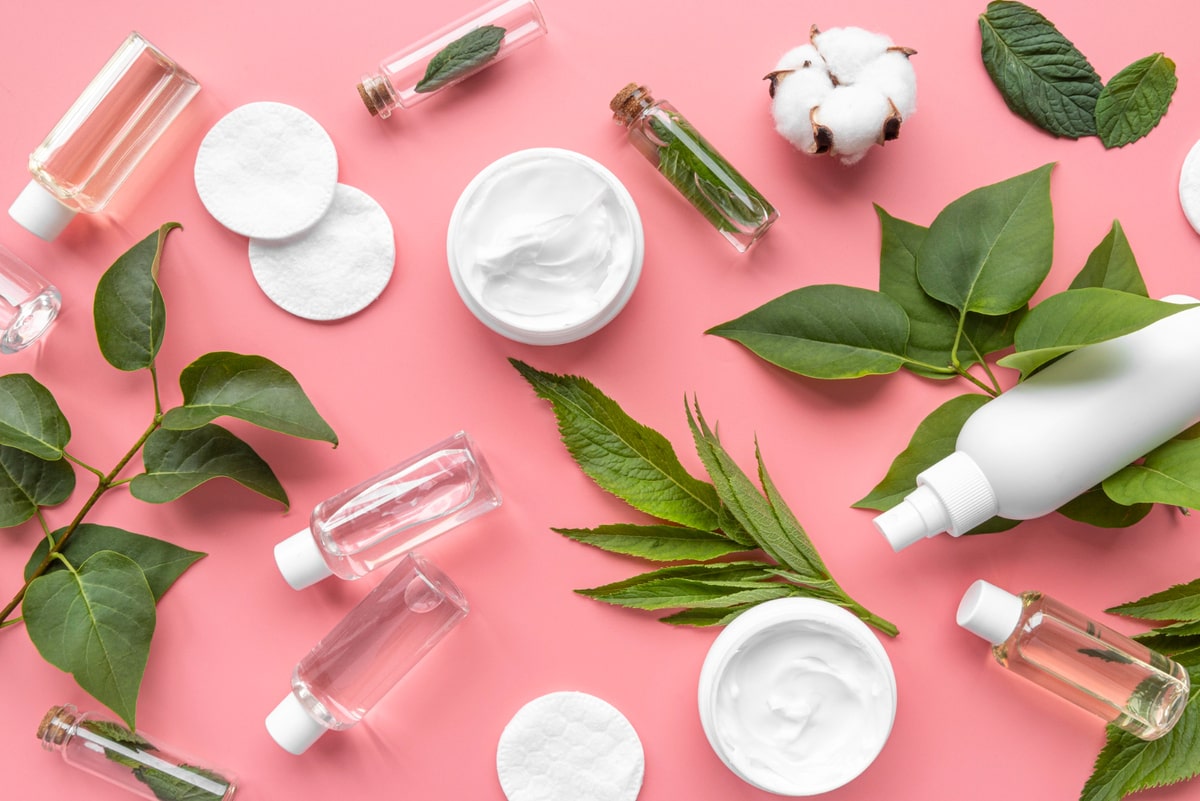Specialty chemicals play an important role in the cosmetics industry, shaping countless beauty products’ effectiveness, safety, and sensory appeal.
From moisturisers and makeup to shampoos and sunscreens, these advanced compounds are behind the performance and allure of daily cosmetic essentials.
Let’s delve into the key functions of specialty chemicals and explore how they are driving innovation in the cosmetics industry.
What are the Key Functions of Specialty Chemicals

1. Delivery and Absorption Enhancers
One of the primary functions of specialty chemicals is to improve the delivery and absorption of active ingredients deeper into the skin layers.
Innovative technologies such as liposomes, exosomes, encapsulations, micro sponges, and penetration enhancers are designed to encapsulate and transport active compounds.
These technologies typically enhance the stability of active molecules they encapsulate (e.g. Vitamin C and Retinol), providing greater efficacy for the consumer.
These specialty chemicals help stabilise compounds and increase their penetration, allowing the active ingredients to reach their intended targets more effectively, resulting in better product performance.
2. Texture Modifiers
An essential feature that comprises the consumer experience of skincare and personal care products comes from the sensorial aspect. Sensorial performance is just as important as the efficacy of its active ingredients.
Specialty chemicals such as thickeners, emulsifiers, and gelling agents are essential for creating desirable textures in cosmetic products.
From rich, indulgent creams to lightweight, easily-absorbed serums, these ingredients help to achieve the perfect consistency.
Emulsifiers, in particular, play a crucial role in ensuring the even distribution and stability of oil and water phases, preventing separation and extending the product’s shelf life.
Different types of emulsifiers help to achieve different sensory profiles, creating a unique sensorial fingerprint of your product.
3. Preservatives and Antioxidants
Speciality chemicals like preservatives and antioxidants are invaluable in the quest for longer-lasting and safer cosmetics.
Preservatives inhibit microbial growth, preventing spoilage and ensuring product safety and longevity.
Due to irritation potential, preservatives must be carefully selected to achieve the desired effect, whilst maintaining its skin-friendliness.
Antioxidants, however, protect against oxidation and degradation of active ingredients, maintaining their potency and efficacy over time.
Products which contain antioxidants may affect the finished product stability, hence they need to be selected and formulated thoughtfully as well.
4. Sensory Enhancers
The sensorial experience of using a cosmetic product adds a unique twist to the consumer experience on top of texture.
Specialty chemicals such as emollients, film formers, and silicones contribute to this aspect. By using a blend of texture modifiers and sensory enhancers, brands can provide a unique product experience for different consumer groups.
Emollients provide a smooth, non-greasy feel on the skin, while film formers create a long-lasting, transfer-resistant finish.
On the other hand, silicones can add a luxurious silky touch and enhance spreadability.
5. Colour Cosmetics
In the realm of makeup, specialty chemicals are indispensable for creating vibrant, long-lasting, and high-performance products.
Pigments, pearlescent agents, and dispersing agents work together to deliver an intense, even colour payoff and a flawless finish.
Meanwhile, silicones can help improve the performance of colour cosmetics products, such as providing
- long wear,
- non-transfer,
- water resistance, or
- anti-caking.
Collectively, these ingredients enhance the longevity and application of colour cosmetics, ensuring they stay put throughout the day.
Read More: Natural Formulation: A Collaborative Journey Through the Art of Cosmetics
The Protective Functions of Specialty Chemicals

Specialty chemicals play a vital role in shielding the skin from harmful environmental factors.
Among these specialised ingredients, mineral and chemical UV filters, along with SPF boosters, stand out as formidable defenders against the damaging effects of the sun’s ultraviolet radiation.
1. UV Filters: Nature’s Sunscreen Allies
Mineral UV filters act as physical barriers, reflecting and scattering UV rays before they can penetrate the skin’s surface.
These natural minerals provide broad-spectrum protection against both UVA and UVB rays, which can cause:
- sunburn
- premature ageing
- skin cancer
Chemical UV filters, on the other hand, work by absorbing specific wavelengths of UV radiation. They convert the energy into a safer form that can be released as heat.
These organic compounds offer targeted protection against specific UV ranges, making them valuable additions to sunscreen formulations.
2. SPF Boosters: Amplifying Sun Protection
While UV filters form the backbone of sun protection, SPF (Sun Protection Factor) boosters enhance their effectiveness. They increase the overall sun protection capabilities of a product.
These specialty chemicals work synergistically with UV filters, stabilising them and improving their performance under various conditions, such as exposure to water or sweat.
Read More: An Informative Guide to Halal-Certified Cosmetic Ingredients
The Future of Specialty Chemicals

As the cosmetics industry continues to evolve, the role of specialty chemicals is poised to grow even more significant.
1. Multifunctional Ingredients
One emerging trend is the development of multifunctional ingredients, combining properties in a single compound, such as:
- antioxidant
- anti-ageing
- hydrating effects
This approach leads to more efficient and streamlined formulations, meeting multiple consumer needs with fewer ingredients.
2. Customisation and Personalisation
Customisation and personalisation of cosmetic products are also on the rise, driven by consumer demand for tailored solutions.
Specialty chemicals offer the flexibility to create formulations that cater to individual preferences and needs, such as:
- specific skin types
- age groups
- lifestyles
This level of personalisation enhances the overall consumer experience and fosters brand loyalty.
3. Natural and Sustainable Ingredients
Furthermore, there is a growing focus on natural and sustainable ingredients in the cosmetics industry.
Specialty chemicals derived from plant sources, biodegradable alternatives, and eco-friendly formulations are enabling the development of more environmentally conscious formulations.
This aligns with consumer preferences for greener, more sustainable products and supports the industry’s efforts towards greater sustainability.
Read More: Skincare Ingredients 101: A Comprehensive Guide
Elevating Cosmetic Innovation with Avares
To stay ahead of the curve and bring cutting-edge formulations to market, partnering with a reliable distributor of specialty chemicals is essential.
Avares offers an extensive portfolio of specialty chemicals, active ingredients, and ingredients for the personal care and cosmetic industries.
Whether you’re a cosmetic brand seeking to revolutionise a product line or a manufacturer aiming to optimise formulations, Avares is here to provide a variety of solutions!




